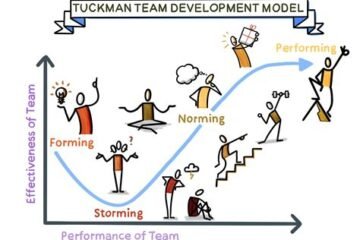Embarking on the journey of a team leader is a thrilling and challenging adventure filled with opportunities for professional growth and positive change. However, as new responsibilities and expectations emerge, the role can prove daunting, especially at the onset. Remembering my early days as a team leader, I recognize how understanding these challenges is the crucial first step towards overcoming them and achieving effective leadership.
At the heart of these challenges is the vital task of building trust within the team. As the cornerstone of any successful team, trust is primarily the leader’s responsibility to establish. Team members must feel comfortable enough to be open and vulnerable, trust that their leader prioritizes their interests, and believe that their thoughts, ideas, and concerns will be valued and considered. This becomes especially challenging when leaders are promoted from within a team, prompting a need to redefine their relationships with former peers. Trust once established, however, serves as a platform for addressing another prevalent challenge – conflict management.
Conflict often strikes fear into new team leaders, being perceived as a sign of dysfunction. However, avoiding conflict can breed a lack of open communication and the suppression of diverse ideas. The true challenge, therefore, lies not in circumventing conflict but in promoting healthy conflict that drives innovation and growth rather than fostering destructive, personal discord.
In addition, delegation is a hurdle that many new leaders grapple with. It is all too common for new leaders, especially those promoted from within the team, to struggle with releasing their old tasks. They may feel that they can perform the job better or faster, or they may lack the trust in their team members to handle the task. This leads to a shortfall in empowerment and development opportunities for the team members and potential burnout for the leader.
Maintaining the balance between exerting authority and nurturing a democratic environment can also present a conundrum. Leaders must be decisive and provide clear direction while fostering an environment that values and welcomes the input of team members. Leaders who dictate all decisions may alienate their team, while those appearing too indecisive may seem weak or ineffective.
The silver lining is that these challenges are not unprecedented. A plethora of knowledge is available for new (and seasoned) team leaders. Here is my personal list of top books for new team leaders, each offering valuable insights and guidance:
- “Overcoming the Five Dysfunctions of a Team: A Field Guide for Leaders, Managers, and Facilitators” by Patrick Lencioni: This guide offers specific, practical advice, including tools and exercises, to help teams surmount common obstacles that impede optimal functioning, such as an absence of trust, fear of conflict, lack of commitment, avoidance of accountability, and inattention to results.
- “Drive: The Surprising Truth About What Motivates Us” by Daniel H. Pink: Pink delves into what truly motivates individuals and how leaders can leverage this understanding.
- “Radical Candor: Be a Kick-Ass Boss Without Losing Your Humanity” by Kim Scott: Scott emphasizes building a culture of feedback, asserting that leaders should care personally about their team while challenging them directly.
- “Team Topologies: Organizing Business and Technology Teams for Fast Flow” by Matthew Skelton and Manuel Pais: This book provides a practical, adaptable model for organizational design, focusing on aligning teams and their roles to foster a fast and responsive software delivery system.
- “Dynamic Reteaming: The Art and Wisdom of Changing Teams” by Heidi Helfand: Helfand debunks the myth that team changes should be avoided and argues that reteaming can enhance team and organizational learning, boost performance, and expedite innovation.
- “Notes to a Software Team Leader: Growing Self Organizing Teams” by Roy Osherove: Osherove shares his insights on leading software teams, highlighting the importance of balancing the need for control with enabling team members to self-organize.
So, what’s your favorite book for team leadership? Can you recall your personal experiences as a newly appointed team leader? What were the top few challenges you faced and overcame?
Please, share your thoughts in the comments.

